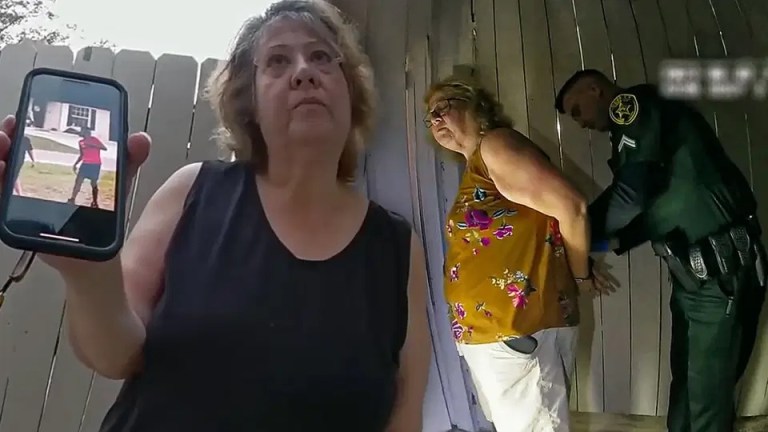
17 Struggles Of Being Mixed-Race

1.Nobody knows how to identify you.
Unlike what you’re familiar with, the idea of interracial families and mixed-race people is still foreign to many of your peers. Identifying mixed-race people for the untrained eye is often akin to meeting an alien, because to them, you look different, might not speak just how they anticipated, aren’t visible in the largest numbers, and they often don’t know how to interact with you.
2. People identify you incorrectly.
On the other hand, sometimes people are certain they know who you are or get a bit lazy with the labels. Oftentimes acknowledging the other parts of you is completely insignificant to them.
3. People interact with you based on who they think you are.
One time in middle school, a new black student’s grandmother approached me and began complaining, in a very heated manner, about how there were no black people in the school, neighborhood, etc. I asked her what she expected me to say with a black mother and white father. She cocked her head and said, “Oh” as she rolled her eyes and walked away. How you identify determines how people treat you.
4. Others fail to accept how you self-identify.
And then when people do discover your ethnic makeup, they somehow find it disagreeable. You’re too this and too that for some people, who will also become angry if you don’t “choose” one side or another.
5. You hate everyone and feel hated by everyone.
One day in high school, I stumbled upon six of my friends, three of whom where black and the other three white. They were having a playful white girls vs. black girls catfight, making “lighthearted” race jokes back and forth. As soon as I turned the corner, I met a dead silence followed by, “Look who’s fucked it up now”; “Here comes the half-breed”; “Oh, we’ve got a deal-breaker”; “Game over.”
This was one situation where I wasn’t happy all of me was recognized. I knew we were all friends, but I couldn’t help but wonder about the conversations that took place when I wasn’t around.
6. You feel isolated.
I don’t wish I could be more black, white, or Latina; it’d just be nice to be fully accepted simply as I am into black, white, and Latino circles.
7. People assume you have identity issues.
If Kara has one black parent and one white parent, Kara is an Oreo.
Even in 2014, with Barack Obama as president, people still fail to understand how your identity is not homogenous, how the different parts of you are not mutually exclusive, and how acknowledging all of you because you want them to (and you believe in accuracy) does not in any way, shape, or form mean you are troubled or confused.
8. People make assumptions about your socioeconomic status, interests, etc.
Because only middle-aged white people can be fans of Elton John.
9. Fetishization, idealization, and demonization of the exotic “other.”
Being placed on a shady pedestal:
“You’re pretty for a _______ girl.” “I never date _____ girls, but you’re the exception.”
Monoracial people get this, too (cue white guy approaching “cute Asian girl”).
When you’re mixed, there’s often an insidious historical narrative that precedes you due to colonization or slavery, especially if you’re black and white and have fair skin. You simultaneously remind people of a painful history of white slave masters raping black women and the “tragic mulatto” offspring that remotely resemble you and all the video vixens in your favorite rapper’s video.
Based on twisted, widespread, Eurocentric beauty ideals, your monoracial peers might view you or believe you view yourself as the ultimate competition.
It gets all kinds of messy.
10. There are few bone-marrow donors.
Despite our growing numbers, you’re more likely to find a white, black, or Korean person who has identical tissues than someone who is white, black, and Korean.
While 2/3rds of whites find a match, non-white matches are as low as 1/4. So that leaves mixed-race people, ugh, unlucky.
11. Inaccurate medical results.
There was only one time in my life that a medical professional asked for my ethnic background. In my experience, they always assume your ethnic background if they are not concerned with accuracy or oh-so-sure of where you come from. One time my godmother, who is Chinese, brought me to the doctor. During a checkup weeks later I was asked to update my forms and saw “Chinese” and “African-American” checked for race. When the doctor explained my test results to me, she informed me of my risks of x,y,z, as someone of Asian ancestry. Certain ethnic groups are at greater risks for some diseases, so an incorrect label can yield inaccurate and largely irrelevant results.
12. Hair (more likely a struggle if you’re black and white) .
I have five different curl patterns growing from my head. This is not an effort to sound more exotic; it’s annoying as shit. The crown has tiny, thick curls of two different diameters; the right side, front, and edges are fine, small-medium sized curls; the left side has what I consider limp white-girl waves; and the back is medium-sized ringlets. Who the hell is going to make product for my hair?!
Nobody.
13. People in your circle are insensitive, even if you expect otherwise.
Monoracial friends and family members can be insensitive to your unique experiences. Even though you’re a part of their life, they still might be small-minded.
14. Apparently you don’t belong to your parents…
People will disbelieve or express shock over who your mom or dad are. I know people whose parents, when attempting to take them home from the playground, were reported to the police because an abduction was presumed to be taking place. When I was a kid, people told my father to return me to my real parents and my mother that I was too light to be hers.
15. …but at least you belong to the world.
Your identity is rarely consistent, especially if you travel, and because you don’t fit into one category, you will always be something else to the next person, depending on the environments, countries, and cultures you grace.
16. You learn to forget what others think.
Because most people still have to catch up and have a lot of exploring left to do, it’s important to be resilient and value no opinion about yourself but your own. The ones who hate you for your biracial or triracial glory are jerks.
17. Making peace with yourself.
What your parents, friends, peers, schoolmates, doctors, and government says about you may dictate who you are in society for a while, but ultimately you should only be concerned about who you are to you. ![]()











